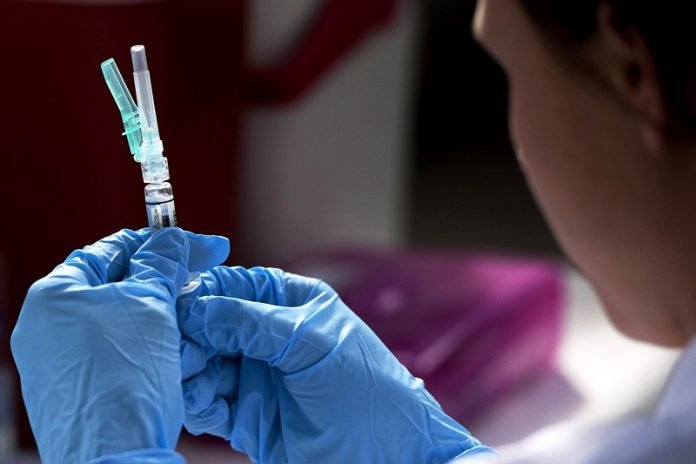
Don’t worry if you’ve waited until all the Halloween candy has been gobbled up to get your annual flu shot.
Experts from Northeastern say the weeks leading up to Thanksgiving get-togethers are a great time to get vaccinated against seasonal influenza.
“Now is exactly the right time,” if you haven’t gotten it already, says Samuel Scarpino, director of life sciences at the Institute for Experiential AI at Northeastern University.
“The flu vaccine is a good match, which isn’t the case every year,” he says.
With an early start to the flu season in 2022, “maybe the best time to get the vaccine was two weeks ago. But the second best time is right now.”
It takes about two weeks for vaccines to build up enough antibodies to reach peak efficacy, says Brandon Dionne, associate clinical professor at Northeastern’s School of Pharmacy.
That means people who get vaccinated against the flu in the next few days should have some protection against influenza at Thanksgiving gatherings.
“I’d say it’s never too late,” says Dionne, who advises getting vaccinated in mid- to late-October, “when you start seeing Halloween candy for sale.”
He does not advise that people get the flu vaccine as soon as it rolls out in August and early September.
The immunizations work for six months, but their effectiveness diminishes, Dionne says.
“It wanes over time. You have a lower level of circulating antibodies at six months,” he says.
That means people might not be at peak protection if the flu surges in January, February or March, as it sometimes does.
“Your biggest bang for your buck is before flu season picks up,” Dionne says.
This year, of course, flu season started early, combined with RSV and COVID-19 cases to form a “tripledemic” that filled hospital beds.
Dionne says it’s possible that the 2022-23 influenza season will be “biphasic,” meaning it has two peaks. Or maybe it just had one early peak, he says.
“I’ve learned not to predict the future when it comes to respiratory viruses.”
He does not advise that people get the flu vaccine as soon as it rolls out in August and early September.
The immunizations work for six months, but their effectiveness diminishes, Dionne says.
“It wanes over time. You have a lower level of circulating antibodies at six months,” he says.
That means people might not be at peak protection if the flu surges in January, February or March, as it sometimes does.
“Your biggest bang for your buck is before flu season picks up,” Dionne says.
This year, of course, flu season started early, combined with RSV and COVID-19 cases to form a “tripledemic” that filled hospital beds.
Dionne says it’s possible that the 2022-23 influenza season will be “biphasic,” meaning it has two peaks. Or maybe it just had one early peak, he says.
“I’ve learned not to predict the future when it comes to respiratory viruses.”
With flu season in the Northern Hemisphere still in its early stages, there is little data on how effective the quadrivalent vaccines have been in preventing the spread of flu.
But Scarpino says comparisons of genetic sequences of circulating viruses to the strains covered by the vaccines seem to indicate a good match.
“My guess is it’s going to be in the 50 to 75% range,” he says.
And despite its early start, influenza season is still on the upswing, Scarpino says. So if you are considering whether to get an annual flu shot, “Now is a great time to do that.”
If you care about flu, please read studies about new universal flu vaccine can offer broad protection, and hospitalized COVID-19 patients 3 times more likely to die than people with flu.
For more information about health, please see recent studies that flu shot after heart attack should become standard care, and results showing many people with severe COVID-19 or flu get deadly fungal infection.
Written by Cynthia McCormick Hibbert.



